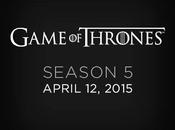 It is a classic case of ‘ the final straw that breaks the camel’s back.’ Otherwise, you couldn’t see how such a simple and not overly cruel action could awaken and uncover so many social and racial conflicts, betrayals, frustrations and weaknesses.
It is a classic case of ‘ the final straw that breaks the camel’s back.’ Otherwise, you couldn’t see how such a simple and not overly cruel action could awaken and uncover so many social and racial conflicts, betrayals, frustrations and weaknesses.
The Slap by Christos Tsiolkas is set in multicultural Australia: a place in which Greeks, English, Indians, Muslims and Australians live together. And who better to tell this story than Tsiolkas, a Greek-Australian from the land of the kangaroos?
The story starts with Hector, Ectora to his Greek relatives, who, one late summer’s day, turns 40 years old. Together with his Indian wife Aisha, he decides to organize a barbecue to celebrate. Everything seems to be going well: the sun is warm but not uncomfortably so, the air is fresh, the grass is green, the food is delicious and there is a camaraderie and passion between the husband and wife. But the characters that Tsiolkas depicts are not picture-perfect from a world away, they are effectively  examples of flawed souls to be found anywhere. And so we have Hector: he’s good-looking, has a nice house, a flash car, a fulfilling job and a sexy wife. He takes an interest in 17 year-old Connie, an assistant at his wife’s veterinary practice, and it is an interest which is anything but platonic.
examples of flawed souls to be found anywhere. And so we have Hector: he’s good-looking, has a nice house, a flash car, a fulfilling job and a sexy wife. He takes an interest in 17 year-old Connie, an assistant at his wife’s veterinary practice, and it is an interest which is anything but platonic.
The multicultural guests arrive along with their children. They bring gifts. They talk about this and that. Everything seems ideally perfect: at a barbecue punctuated by the frequent sound of beer cans being opened and conflicts diffused by sausages and steaks. Hector even finds the time to flirt with Connie, regardless of the presence of so many prying eyes. But let’s hear what Tsiolkas has to say…
“In fact, Gary (frustrated artist working as an unskilled laborer), whose face was indeed flushed and he was slurring as he fired a volley of questions at Anouk (a soap-opera scriptwriter), his finger accusingly jabbing at her chest. “It’s just crap. That’s not how real families are.”
“It’s television, Gary, commercial television.” Anouk managed to sound cutting and bored all at once. “No, it is not how real families are.”
“But you’re perpetrating bullshit that has an influence on millions of people around the world! Everyone thinks that Australian families are exactly like those on the show. Don’t you want to do something better with your writing?”
“I do. That’s why I work as a scriptwriter on the show. To make money to pay for the writing I do want to do.”
“And how much of that are you doing?”
“She’s written a hundred pages!”
Anouk turned to her boyfriend (an actor in the soap she writes for and twenty years her junior). “Shut up, Rhys.”
“Why? It’s true.” He turned to Hector. “She told me this morning. She’s got a hundred pages down on her novel.”
Gary shook his head and looked mournfully down at his beer.
“I just don’t know how you can write that shit.”
“It’s easy. You could write that shit.”

As a pretext to telling us what happens after the slap, Tsiolkas plunges us into the lives of seven people and shows us how differences in gender, age, religion and social class create an unbridgeable gulf, made even bigger by the “we are all equal” hypocrisy.
Australia’s Matchbox Pictures has produced the TV series of the same name. Eight episodes for eight chapters, eight stories from eight different points of view. Broadcast on Australian public television between October and November, The Slap is considered the best drama series of the year.
46 year-old Greek-Australian author Tsiolkas is already a major player among the great contemporary writers and the television series does not let down the imagery of the book — indeed it visually completes its shape. Tsiolkas’ articulate and accurate writing brings the characters neatly to life, one after the other. The first is Hector (played by Jonathan LaPaglia in the TV series), whose birthday is the catalyst which precipitates the story. He is the only one for whom the slap is a “redeeming” factor.
Indeed, immediately following the event, he breaks off his relationship with Connie. It only takes a moment for him to see her for what she is: a girl. The lock of hair at her mouth transforms her instantly from sensual to infantile. Just like her perfume, which is too sickly sweet and cheap to be that of a real woman. The slap saves Hector from making a mistake he would have regretted for the rest of his life.
Then there is Anouk, the scriptwriter family friend whose character is given more scope and substance than that afforded to her by the author. Depicted as a nymphomaniac and rather over-the-top character by Tsiolkas, the beautiful scriptwriter becomes more “human” on the small screen and we find ourselves deeply sympathizing with her struggle to come to terms with ageing and the changes to her body. This is even more apparent when alongside her boyfriend Rhys, a 25 year-old TV star who, despite being 20 years her junior, often proves himself to be more mature and responsible than her.
Then there’s Harry, perpetrator of the “Slap”, the Greek cousin who has made his money overseas and who now arrogantly flaunts it with an enormous white house with a pool. The only things which link him to his past are some photos of his parents, from a poor Europe of bygone times, who allowed him to get where he is today. But the moments of real pleasure for Harry are away from that gilded reality; it is in the city slums where he conducts a brutish relationship with an unattractive, flabby woman which serves to magnify an already vulgar and violent ego. And his ten year-old son, Rocco, is already becoming like him; the only moments of intimacy between father and son is when they are playing a “shoot ‘em up” game on the Play Station.

Behind the slap a real social war is raging: that of rich (or acquired wealth) against poor. Tsiolkas devotes the fourth episode to Rosie, the mother of the boy who was slapped. She is a woman who is completely at the beck and call of her husband Gary, a chronic alcoholic with artistic yearnings, and little Hugo who is spoiled beyond measure, neurotic and aggressive, calling his mother by shouting “Bitty!” at the top of his voice. Rosie is played by Melissa George in the TV series. You may remember her as the beautiful Laura in In Treatment, whose appointments were on Mondays. Only here, she is blonde and slightly “puffy”.
For Rosie, the war on the slap becomes a real social revolt in order to get away from a life consisting of a shabby house, poverty and a lack of hope for the future. With the little savings she has, she hires a lawyer and sues Harry: ready to face anything in order to fight her war.
Therefore, The Slap divides people into two camps: those who sustain that Harry did the right thing and that the child had it coming, and those who consider his actions a despicable act towards a small child. So I put it to you: whose side are you on?





